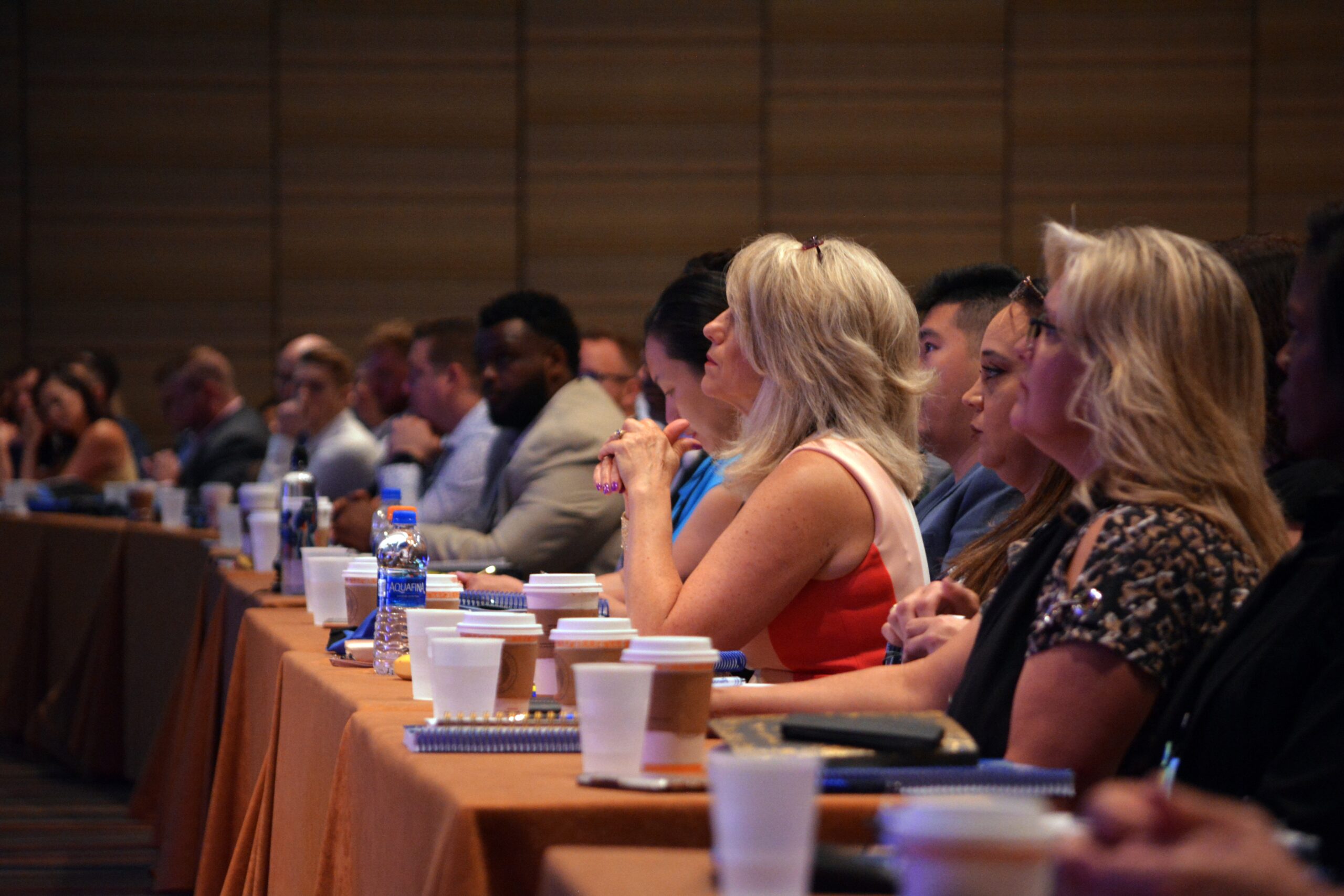
Are you tired of hearing politicians talk about how they will bring us together? Well, buckle up, because we are here to ask the real question: why are politicians dividing us? From polarization of opinions to fueling discontent, it’s time to explore the reasons why our political leaders are creating more division than unity. Let’s get started and find out why!
Let’s take a look at some of the reasons why politicians are driving a wedge between us. First and foremost, it’s all about power. Politicians want to be in control and to be seen as a leader. They want to be the ones making the decisions, and the only way to do that is to create divisions. Politicians know that if they can divide us and make us fight amongst ourselves, then they can stay in power.
Another reason is money. Politicians are always looking for ways to get more money from us. They know that if they can make us fight, they can keep us distracted while they line their pockets. They also know that if they can appeal to our deepest emotions, they can get us to support them more easily.
Finally, there’s the media. Politicians know that if they can get the media to portray us as being divided, they can get more attention and support. The media loves to stoke the flames of division, and they know that the more we argue and fight, the more money and attention they will get.
The bottom line is that politicians are using our differences to their advantage. They’re creating divisions in order to stay in power, get more money, and get more attention. So, the next time you see a politician trying to divide us, call them out on it. Let’s come together and show them that we’re better than that. We can rise above the divisions and create a better future for ourselves and our children.
A look at how politicians use fear to manipulate and divide us to win power.
Reasons for Political Division
Politics has been a hot topic of discussion for centuries. It’s no surprise that it has become a source of division between people. We often find ourselves on different sides of the fence when it comes to political debates. But why is that? What are the reasons for political division?
1. Ideological Differences: People often come from different political and cultural backgrounds. These differences shape their beliefs and values, which can lead to heated debates. We can see this play out in debates between liberal and conservative ideologies, as well as between parties like the Democrats and Republicans.
2. Social Media: Social media has become an increasingly popular platform for people to express their views. The ease of sharing and the ability to reach a large audience has led to heightened polarization and division. Many people often use social media to spread false information, which can further fuel political divides.
3. Political Parties: Political parties can play a major role in creating political divisions. If a party is viewed as too extreme, it can lead to a political divide between those who support the party and those who do not.
4. Media Bias: Mainstream media outlets have long been accused of having a liberal bias. This means that certain news stories are often portrayed in a certain light, while others are ignored. This can cause people to feel manipulated and lead to further divisions.
5. Political Leaders: Political leaders often use divisive tactics to gain votes. They may make inflammatory statements or use fear tactics to rally their supporters. This can lead to people feeling disconnected from those in power and can lead to further polarisation.
6. Lack of Understanding: People often fail to understand each other’s viewpoints. This can cause people to feel frustrated and lead to disagreements. It is important to take the time to understand each other’s views and try to find common ground.
At the end of the day, political divisions are inevitable. However, it is important to stay informed, be respectful and understand each other’s views to help reduce the divide. By doing so, we can create a more united and harmonious society.
Negative Consequences of Political Division
Are you aware of the negative consequences of political division? It’s no secret that political division has created a world of chaos and conflict. From civil wars, to revolutions, to protests, to riots, the world has seen a rise in extreme political division.
While some may argue that political division is necessary for healthy democracy, this type of division often leads to a downward spiral of increased hostility and animosity, making constructive dialogue and compromise increasingly difficult. Here are a few of the negative consequences of political division that can be seen in the world today.
1. Diminished civil liberties: Political division can lead to an erosion of civil liberties, such as freedom of speech, assembly, and the right to dissent. This can lead to an oppressive environment where individuals are unable to express their opinions freely.
2. Increased poverty: Political division can lead to economic stagnation and increased poverty. This can lead to a decrease in the standard of living and a lack of resources available to meet basic needs.
3. Increased violence: Political division can lead to an increase in violence. This can lead to civil unrest and riots, as well as outbreaks of violence between different political factions.
4. Diminished investment: Political division can lead to a decrease in foreign investment as investors become wary of investing in countries with internal political divisions. This can lead to a decrease in economic growth and a decrease in employment opportunities.
5. Increased tension: Political division can lead to an increase in tension between different political factions, making compromise and collaboration increasingly difficult. This can lead to a breakdown in communication and a decrease in trust between different groups.
These are just a few of the negative consequences of political division. It’s important to recognize that this type of division can have serious and long-lasting consequences on a society, and it’s essential to work together to bridge the divide and find common ground.
So, if you want to keep your country safe and prosperous, it’s essential to take the necessary steps to reduce political division. This means working together, finding common ground, and having constructive dialogue. Only then can we hope to create a more unified, peaceful, and prosperous world.
Steps to Reduce Politicians Dividing Us
Are you tired of politicians dividing us? It seems like every day there’s a new controversy or hot-button issue that’s dividing us as a nation. But there is hope! Here are some steps you can take to reduce the amount of political divisiveness in your life.
1. Pay attention to the facts. It’s easy to get caught up in the heat of the moment and accept the narrative that is being presented to us. But it’s important to stay informed and look into the facts before forming an opinion. Doing this will help you make more informed decisions and better understand the issues that are dividing us.
2. Have conversations. Conversations are a great way to connect with others. When it comes to politics, these conversations can help bridge the gap between different perspectives. By talking to people from different political backgrounds, you can gain a better understanding of why people have different views and come to a better understanding of the issues that are dividing us.
3. Listen to opposing views. It’s easy to get caught up in our own beliefs and opinions. But it’s important to listen to the views of others. By listening to those with opposing views, you can gain a better understanding of why other people think differently from you. Doing this can help you form a more balanced opinion and create less divisiveness.
4. Support organizations that promote unity. There are many organizations out there that are working to bring people together and reduce political divisiveness. Consider supporting these organizations or getting involved in initiatives that promote unity. This will help create a more unified society and reduce the amount of political divisiveness.
By taking these steps, you can help reduce the amount of political divisiveness in our society. So let’s come together and do our part to make sure that no matter what political beliefs we have, we can still find ways to bridge the divide and come together as one nation.
How Can We Unite?
Uniting a divided nation has been a hot topic these days. This can be seen in the ever-increasing polarization of the political landscape, with politicians and parties growing further and further apart.
But despite this seemingly insurmountable divide, it is possible to bridge the gap between us. Politicians have a unique opportunity to bring us together by taking concrete steps to reduce divisiveness.
The first step is for politicians to make a concerted effort to reach out to their constituents and listen to their needs. Too often, the political process is seen as a one-way street, with politicians making decisions in a vacuum without any input from their constituents. This can create a sense of disconnect between politicians and the people they represent. If politicians are willing to actively engage with the people they serve and make an effort to understand their perspectives, they can start to bridge the divide.
The second step is for politicians to stop using divisive rhetoric. We have seen too many instances where politicians have used inflammatory language to inflame a situation and create an even greater divide between those on different sides of the political aisle. By refraining from inflammatory language, politicians can set a more positive tone and help to bring people together.
Finally, politicians must also take concrete steps to address the issues that are driving the divisiveness. Whether it be economic inequality, racial injustice, or any other issue, politicians must take concrete steps to address these issues instead of simply relying on rhetoric to divide us further.
By taking these steps, politicians can begin to bridge the divide and unite a divided nation. It won’t be easy, but it is possible. So let’s all work together and call on our politicians to set a more positive tone and take concrete steps to bridge the divide. We can make a difference.
Solutions to Political Division
Are you tired of the seemingly never-ending political division in our country? Do you feel like there’s no real solution to the problem? Don’t worry, there are solutions to the political division, and it’s time to get caught up on them!
First, it’s important to recognize the underlying causes of the political divide. Generally, these issues stem from a lack of understanding between opposing groups. This can be brought about by a lack of communication, a lack of empathy, and a lack of effort to build bridges between the two sides.
So, what can we do to bridge the gap between the two parties?
1. Create a Dialogue: Dialogue is key in helping to bridge the political divide. We must begin to talk with each other, and not just in opposition. Find common ground, and work together to discuss solutions to the issues at hand.
2. Increase Civility: Civility is essential in bringing people together and having productive conversations. We must take the time to be respectful and open minded in our conversations and in our interactions with one another.
3. Listen to Each Other: It’s important to remember that everyone has a different opinion and perspective on the issues. Listen to what each side has to say, and be open to hearing different perspectives.
4. Educate Yourself: It’s important to educate yourself on the issues at hand and to be aware of the facts. This way, you’ll be able to have better conversations with people who have different opinions and approaches.
5. Focus on the Solutions: Instead of getting caught up in the arguments, focus on the solutions that can be implemented to help solve the issues. This will help bridge the gap between the two sides.
These solutions may seem simple, but they can go a long way in helping to bridge the political divide. The key is to stay informed, stay open-minded, and stay focused on the solutions instead of the arguments. With a little bit of effort, we can move towards a more united future!
Conclusion:
We cannot deny that politicians play a major role in dividing us. They use every outlet available to them—from the media to their platforms—to spread their own agenda and use divisive tactics to gain support. But it doesn’t have to be this way. We can use our voices to call out politicians when they try to divide us, and work together to create a better future that embraces everyone. Let’s make sure that no one gets left behind–it’s time to come together!
FAQs
Who are considered as politicians?
Politicians are individuals who participate in the political process in some way, either through holding public office, campaigning for a candidate or party, or advocating for a cause. Politicians can be members of a political party, independent, or affiliated with a non-governmental organization. They may also be members of the public who are involved in the political process.
What are the roles of politicians?
Politicians are leaders elected to represent the public and make decisions on their behalf. They are responsible for creating and implementing policies, laws, and budgets that reflect the public’s needs and interests.






